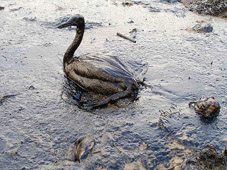 Following a disastrous explosion on an oil drilling rig in the Gulf of Mexico on the 20 April 2010, 11 workers tragically lost their lives and a further 17 people were injured. Before we even begin to analyse the legal implications of this disaster, it is important that we spare our thoughts for the friends and families of these unfortunate employees.
Following a disastrous explosion on an oil drilling rig in the Gulf of Mexico on the 20 April 2010, 11 workers tragically lost their lives and a further 17 people were injured. Before we even begin to analyse the legal implications of this disaster, it is important that we spare our thoughts for the friends and families of these unfortunate employees.
There is absolutely no denying the fact that the Deepwater Horizon Oil Spill represents one of the worst human-made natural disasters that this planet has ever seen. The United States have already stated that this oil spill is the worst in their own country’s history, and with the flow still not completely contained, it is difficult and altogether rather frightening to speculate on the eventual end that this catastrophe will reach.
Before the actual explosion on the 20 April, it has been reported that several workers and supervisors on the rig had expressed their concerns over well control. Alas though, this disaster still occurred due to the build-up of immensely dangerous levels of methane gas.
The result of this disaster has been understandable pressure, from the people whose livelihoods depend on the Gulf Coast, being directed towards the US administration. Obviously, President Obama is the head of this administration and feels that he must be seen to be doing all that he and the US Government are able to in order to contain this disaster. In turn, this has meant that attention has been focussed on the company that is believed to be responsible for this event – namely BP.
 Following a number of weeks of harsh words and blame apportioning, we are now starting to learn about the way in which BP have elected to deal with the crisis so far. Some reports are stating that BP are worried over the implications of the pending legal case that is being prepared against them. Indeed, there are even some allegations that BP are trying their best to appropriate a judge to hear this case that has strong financial connections to the oil business. It has become clear that finding a completely impartial judge for this case is going to prove something of a problem.
Following a number of weeks of harsh words and blame apportioning, we are now starting to learn about the way in which BP have elected to deal with the crisis so far. Some reports are stating that BP are worried over the implications of the pending legal case that is being prepared against them. Indeed, there are even some allegations that BP are trying their best to appropriate a judge to hear this case that has strong financial connections to the oil business. It has become clear that finding a completely impartial judge for this case is going to prove something of a problem.
It would seem that nothing is cut and dried about the case that is being prepared against BP; even the Attorney General, Eric Holder, is having difficulties in identifying whether or not the company are responsible for having breached civil and/or criminal laws.
Of course, in the USA, BP will also be subjected to applicable state law, and this is where this case may become even more interesting. On a national level and in all states apart from Louisiana, a case will be determined through any common law precedents that have been established beforehand. In turn, this may offer BP a small degree of insight into what they may expect to transpire in the forthcoming case. However, and it is a big however! Louisiana state law is the only system that relies upon the very old Roman law model. This effectively means that all cases are judged by way of their own merit and that precedents are not relied upon as in other states and at the national level. This is probably going to be where BP will have most to fear.
Under The Oil Pollution Act of 1990 (US federal law), BP will always have an onus of responsibility to pay for the relevant clean-up of the spillage, and to be fair, they are not shirking this responsibility. Whether or not the tort of negligence is going to be proven, on BP’s part, will determine whether or not they have a limit of $75 million to be paid out in compensatory claims or a vastly higher figure than this. As the US Government has ordered BP to set up a $20 billion contingency fund for exactly this same purpose, it is clear that they feel confident in being able to prove negligence in the pending legal case.

